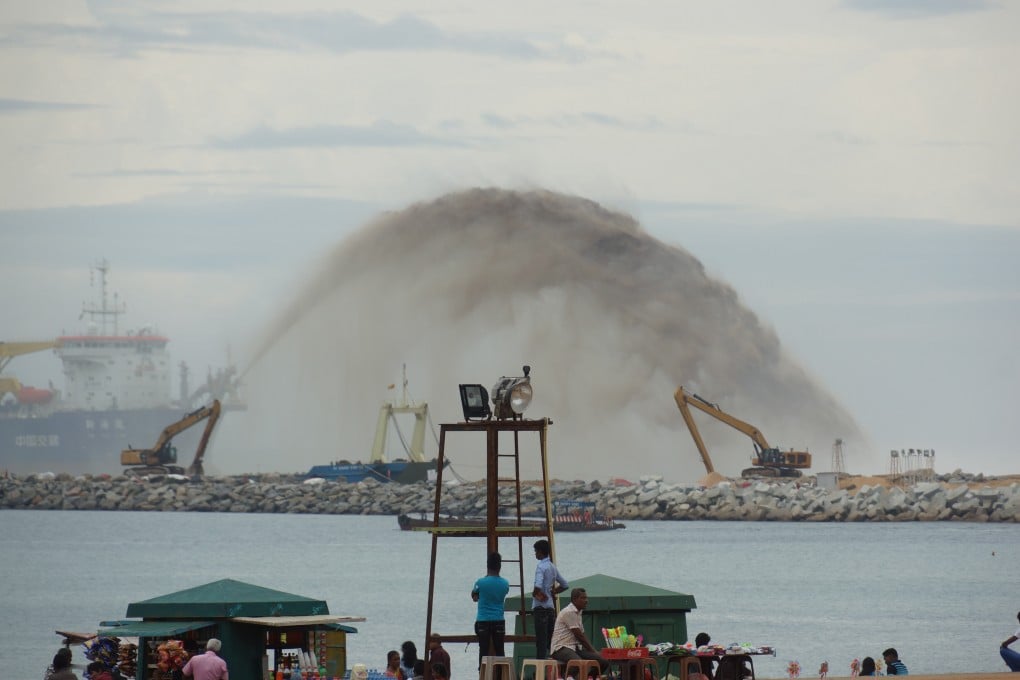India’s concerns over China’s rising influence in Sri Lanka grow with progress of US$1.4 billion port city project
- New legislation governing Colombo Port City was passed last month amid local opposition to the project funded by a Chinese state-owned firm
- Ex-diplomat says India cannot match China’s resources to build infrastructure in countries such as Sri Lanka, which has dismissed concerns about ‘debt traps’

Critics are concerned that without parliament’s oversight, the project would be administered largely according to the wishes of the SEZ’s major investor, CHEC Port City Colombo, a unit of state-owned China Communications Construction Company.
CHEC Port City Colombo has the right to use just under one-quarter, or 62 hectares (153 acres), of the land on a 99-year lease from the Sri Lankan government, according to the project’s website.
Sri Lanka has also been a crucial staging post for much of the cargo coming in and out of India, and although Sri Lanka insists it has an “India first policy”, New Delhi’s concerns remain.
“These are diplomatic statements to disarm India diplomatically,” Sibal said. “India is losing out not only in Sri Lanka but also in Nepal.”